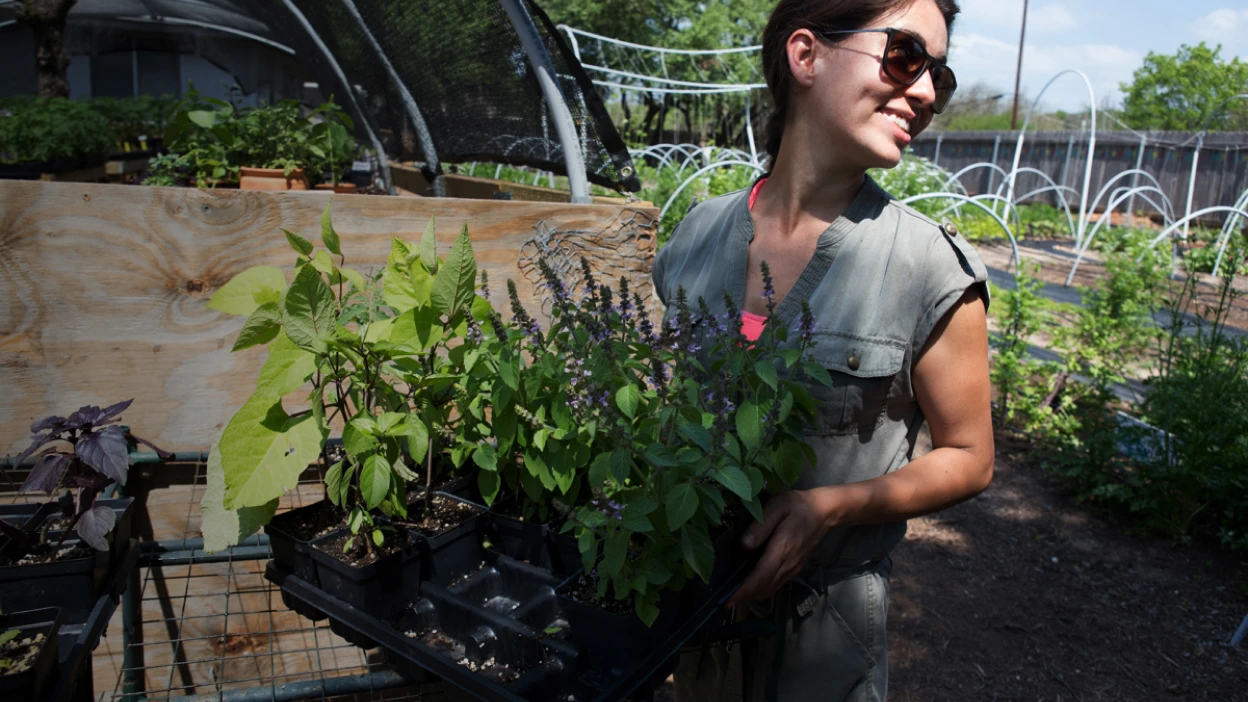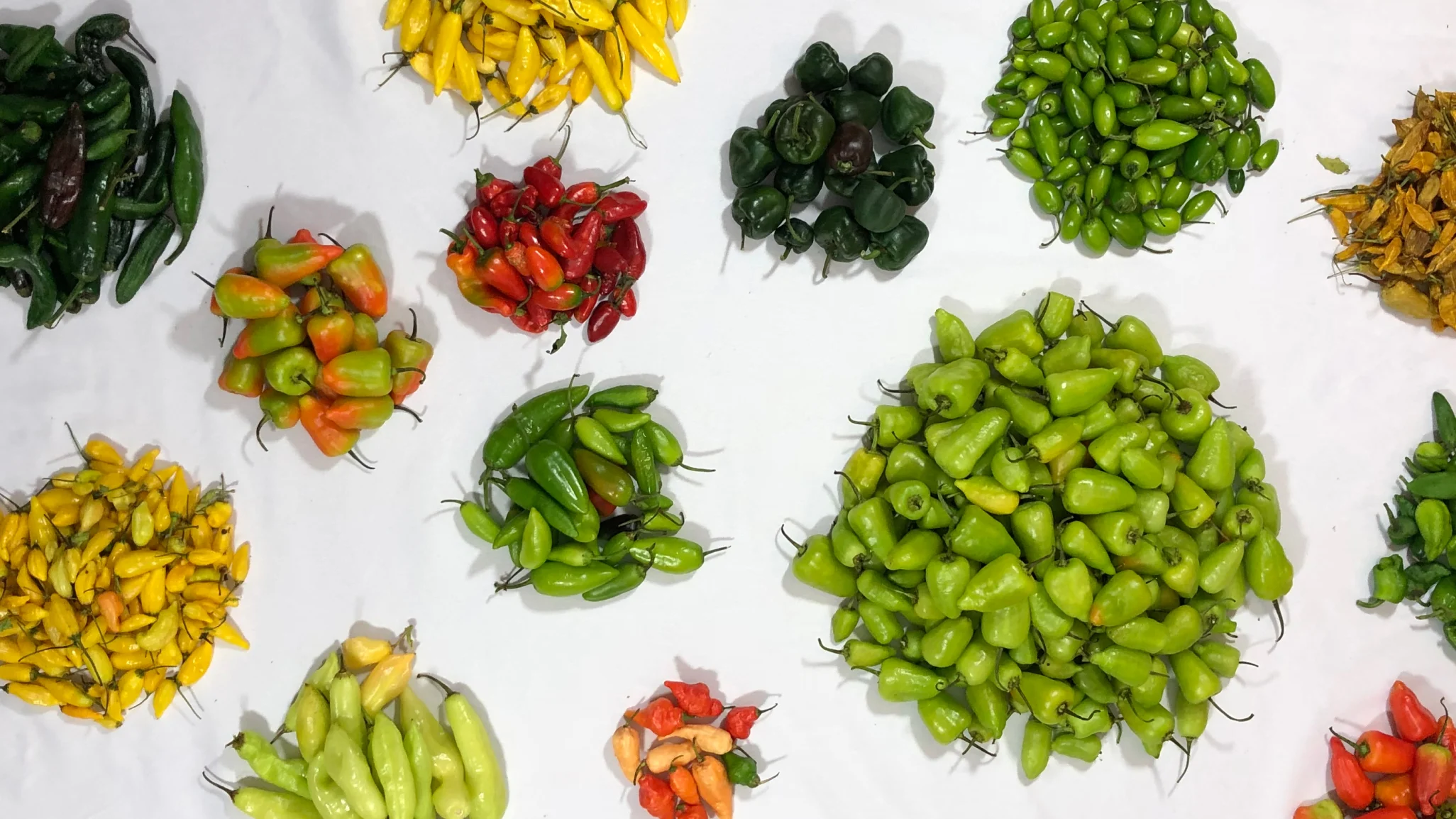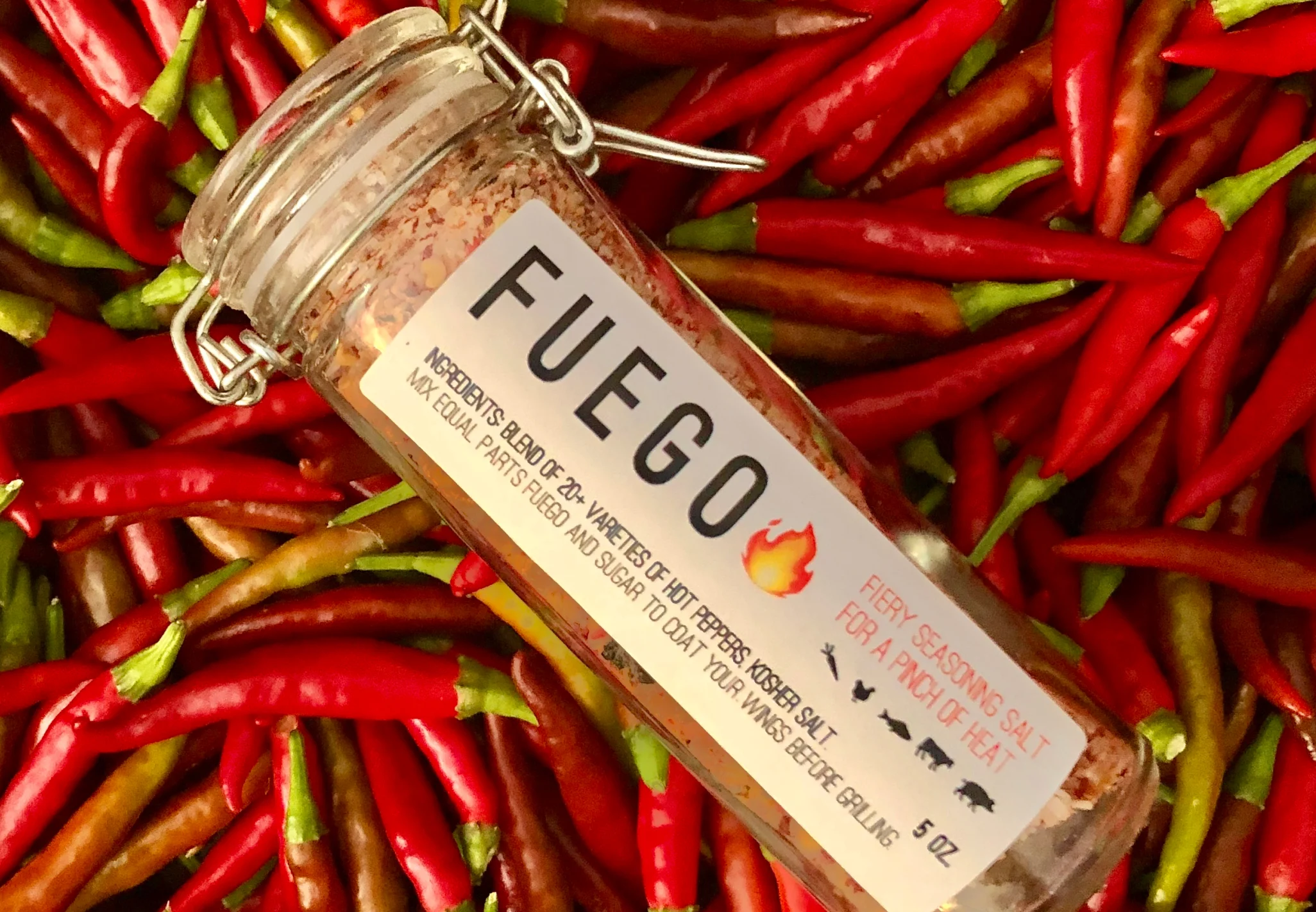Farmers’ stories
La Flaca
Farming in a Pandemic

This piece is part of a month-long series about what farming is like today. Stay tuned for more stories like Alejandra’s and follow along on social with @Tillamook and #AllForFarmers. By purchasing Tillamook all month long, you can support the work of American Farmland Trust who are helping farmers nationally get ready for the future.
Alejandra Rodriguez Boughton is no stranger to resilience.
She immigrated to the U.S. from Monterrey, Mexico in 2012 to attend the University of Texas at Austin’s McCombs School of Business. While earning her degree, Rodriguez Boughton de-stressed by cooking traditional Mexican meals, but she struggled to find the right ingredients.
She began growing the herbs, spices, and chiles that were missing from her marketplace. She wondered, if she’d been missing these flavors, maybe other people were too. As it turns out, she was right. Soon Rodriguez Boughton was selling the flavors of her hometown to restaurants across the Austin area.
"A lot of chefs in the restaurant industry are immigrants too. I started asking them about ingredients they missed from home and in the process discovered a niche market,” explained Rodriguez Boughton.

Cultivating passion—and a plan.
This market drove Rodriguez Boughton to leave her corporate job and found La Flaca, a two-person farm operation that grows ingredients that allow chefs to transport their customers to another country with just one bite. La Flaca specializes in herbs, chiles, fine greens, and edible flowers. Rodriguez Boughton planned to grow the La Flaca operation by hiring its first paid intern this fall, but those plans changed with the arrival of the COVID-19 virus.
Restaurant orders disappeared overnight, leaving La Flaca in the lurch, having already ramped up production to meet the increase in demand that usually comes with spring. To make matters worse, Rodriguez Boughton’s only employee was exposed to the coronavirus and fell ill for two weeks. Rodriguez Boughton struggled to come up with the money to pay his sick leave.

A pandemic pivot.
For farms who sell primarily to restaurants, the impact of the COVID-19 virus on their ability to move product has been tremendous. Until now, Rodriguez’s business was set up to sell wholesale to restaurants. With the closing of restaurants nationwide “we lost 90% of our sales overnight,” Rodriguez confides.
With such a monumental decrease in their profits, Rodriguez knew that the only way to get their food on to customers plates again was to get creative. This creative path forward included changing the way they get food to customers; switching from a direct to restaurant model to online sales. They began to create packaged goods that could be shipped directly to customers, like their new Fuego Salt, which incorporates 20 varieties of peppers from our farm and “is great with popcorn,” says Rodriguez with a sense of pride.
As they adapt to this new model, there are bound to be growing pains but there is one thing that brings Rodrigues Buoughton hope; community.
Spreading goodwill, connecting communities.
Despite the hit to her business, Rodriguez Boughton remains determined to find ways to uplift her community during this challenging time. “We’ve been leaving surprise bouquets of flowers and herbs for our restaurant customers. Just a little something to cheer up our friends. It’s not much, but it’s about finding ways to show each other that we’re not in this alone,” explained Rodriguez Boughton.
At a time when little things have become extremely important, Rodriguez Boughton’s bouquets don’t feel small at all.
If there’s anything that’s kept us going it’s talking to other farms and finding ways to support each other. It’s about community, kindness, gratitude, patience, and resilience.
Lending a hand.
The advice Rodriguez gives to everyday people who want to help farmers continue to grow is simple,
Know your farmer.
In 2020, knowing who grows your food seems almost impossible; food comes from restaurants or chain stores, who in turn get food delivered from suppliers, so on and so forth. But at the roots of this complicated system is a farmer, somewhere, who gets up early and actually grows the food. Finding them at local markets, or online shops like LA Flaca, and getting to know them is how we can all lend farms a hand.
To learn more about Alejandra Rodriguez Boughton and La Flaca, click here.